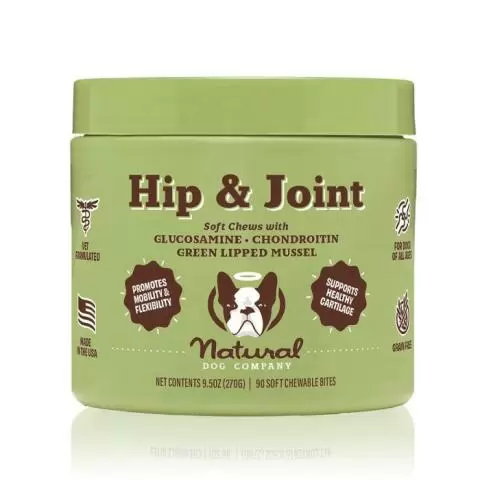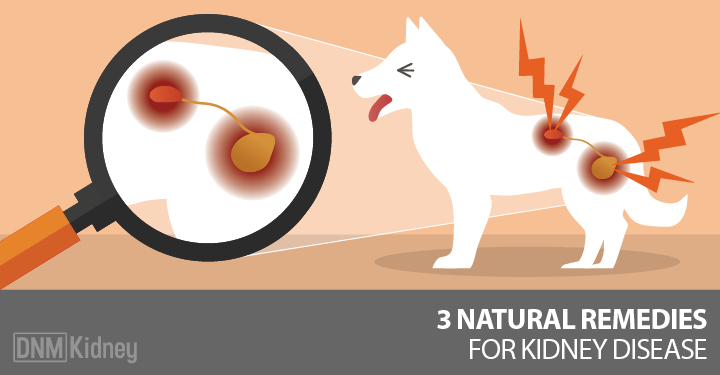Recommended Info To Deciding On Collagen For Dogs
Wiki Article
Probiotics Are A Great Option For Pets And Cats Suffering From Allergies.
Probiotics play a crucial function in the treatment and alleviation of skin allergies in dogs and cats. Probiotics are beneficial microorganisms that help maintain a health microbiome in the gut that aids in sustaining the skin's and overall immune system. Probiotics are beneficial for pets suffering from allergies:
Immune System Regulation
Balanced Immune Response
Function: Probiotics help regulate the immune system. They do this by encouraging the development of healthy bacteria as well as inhibiting the growth harmful bacteria.
Benefits A well-balanced immune system can reduce hypersensitivity that causes skin allergies. This can help reduce the severity and frequency of allergic reactions in pets.
Inflammation Reduction
Anti-inflammatory Effects:
Function Specific strains of probiotics are able to create anti-inflammatory compounds, and regulate the body's inflammatory response.
Benefits: Probiotics reduce systemic inflammation. This can help to ease itching and inflammation caused by skin allergies.
Gut-Skin Axis
Enhance your gut health
Function The gut-skin axis is related to the link between skin and gut health. Probiotics can improve the gut barrier and digestive health.
Benefits of having a healthy stomach: It can help to keep out the leakage of toxins or allergens from the bloodstream. This could trigger a skin reactions. This will help to reduce the signs of skin allergies.
Strengthening Skin Barrier
The Enhanced Skin Barrier feature:
Function: Probiotics influence the creation of ceramides, as well as other lipids that are crucial for maintaining a healthy skin barrier.
Benefits: A more robust skin barrier protects against environmental allergens and pathogens and reduces the risk of skin infections and allergic reactions.
Allergy Symptom Management
Relieve Symptoms
Function: Probiotics have the ability to alleviate symptoms through the modulation of release of histamines, as well and other chemicals involved in allergic reactions.
Benefits: This product can aid in reducing itching, inflammation and irritation caused by skin allergies.
Increased Microbial Diversity
More microbial diversity:
Function: Probiotics boost the diversity of the gut microbiome, that is crucial to have a healthy immune response.
Benefits An microbial diversity improves general health as well as skin health, by preventing increase in bacteria that could cause allergies.
Specific Probiotic strains
Lactobacillus and Bifidobacterium They are two popular probiotic strains that have been shown to be effective in managing allergic skin conditions in pets.
Lactobacillus rhamnosus GG: is known for its role in improving the health of your gut and decreasing allergic symptoms.
Bifidobacterium animals: Helps decrease inflammation and improves the immune system.
Use and Considerations
Dosage dose, administration and dosage The proper dosage is determined by your pet's weight, height and individual health needs. Please follow the instructions on the product label or recommendations from your veterinarian.
Formulations: There are many different formulations of probiotics for your pet, such as powders or capsules. You should select a premium quality, pet-specific supplement to ensure safety.
Monitoring and side effects. Probiotics are generally safe for pets, but it is important to monitor them to determine if they are causing any reactions that are not expected. Beginning with a lower dosage and gradually increasing it, you can minimize any adverse reactions.
Conclusion
Through regulating the immune system and reducing swelling, as well as improving the skin barrier, and overall gut health, probiotics can aid in managing skin allergies. Regular consumption of probiotics could lead to a reduction in allergic symptoms, and promote healthier skin and a better standard of living for pets. Follow the top rated he said on pet wellbeing for site recommendations including pet astragalus supplements, pet wellbeing australia, pet supplements for pets with fear of shadows, pet supplements for pets with special needs, pet supplements for pets with fear of aging, pet skin and coat care, pet supplements for pets with ringworm, pet supplements for pets with food sensitivities and more.

How Do Omega-3 Fatty Acids For Pets And Cats Aid Kidney Failure?
Omega-3 fatty acrs, particularly EPA(eicosapentaenoic ACR) as well as DHA (docosahexaenoic acr), help to manage kidney failure by supporting kidney health. Here's how they assist in the management of kidney failure
Anti-inflammatory Properties
Reduce Inflammation
The function: Omega-3 fats possess powerful anti-inflammatory properties, reducing production of proinflammatory cytokines.
Benefits: Because omega-3s reduce inflammation, they can slow the progression of kidney disease and enhance kidney functions.
Blood Pressure Regulation
Reduce Blood Pressure
Function The Omega-3 fatty acids to regulate blood pressure by enhancing the function of arteries and decreasing systemic inflammation.
Benefits - Lower blood pressure may protect the remaining kidney functions and in preventing the progression of kidney disease.
Proteinuria Reduction
Reducing Proteinuria:
Function: Omega-3s can help reduce the leakage of protein into the urine, called proteinuria, which is a common issue in kidney disease.
Reduced proteinuria reduces further kidney damage and also assists in preserving kidney function.
Glomerular Filtration rate (GFR) Preservation
Supporting Kidney filtering
Function: Omega-3 fatty acids help maintain the vigor of glomerular filtering that is the process through which the kidneys filter blood.
Benefits Maintaining a GFR 50% is crucial in halting the progression of the chronic kidney disease.
Food Stimulation and Support for Nutrition
Improve Appetite
Omega-3s are able to increase appetite in animals suffering from kidney diseases, who often suffer from a decrease in appetite.
Benefits : A diet that is healthier can improve overall health. It can also help maintain muscle mass and weight in animals with kidney disease.
Cardiovascular Health
Helping Heart Health
Function Omega-3 fatty acids help cardiovascular health by decreasing inflammation as well as lowering blood pressure and improving lipid profiles.
Benefits Improved cardiovascular fitness may reduce the risk of complications from kidney failure, such as heart ailments and can improve overall health.
Antioxidant Effects
Reducing Oxidative Stress:
Function: Antioxidant properties of omega-3 fatty oils aid in reducing oxidative strain on the kidneys.
Benefits: A decrease in oxygenative strain can help protect kidney cells from damage and helps promote better kidney function.
Tips for Use
Dosage and administration: The proper dose of Omega-3 fatty acids depends on the pet's weight, size and specific health issues. You should always adhere to the advice of your vet or the product's instructions. Omega-3s from fish oil are typically present in supplements specifically designed for pets.
Omega-3 supplements are available for pets in various forms. These are chews, liquid oils and capsules. Choose a quality product to ensure safety.
Omega-3 supplements can trigger gastrointestinal discomfort in certain pets. It is recommended to begin at a smaller dose, and gradually increase the dosage. This can reduce the risk of experiencing any adverse reactions. It is important to monitor any negative reactions, like vomiting or nausea.
We also have a conclusion.
Omega-3 fatty acid supplements can be beneficial in managing kidney disease in cats and dogs. Their anti-inflammatory, blood pressure-lowering, proteinuria-reducing, and appetite-stimulating properties help support kidney function and overall health. Omega-3 supplements are known to slow down kidney disease progression, improve the quality-of-life, and improve the overall health of pets with renal failure. View the top rated breaking news on collagen for dogs for site info including pet eleuthero supplements, pet papain supplements, pet meat protein supplements, cushings disease natural treatment, pet supplements for pets with grooming anxiety, pet willow bark supplements, pet supplements for pets with anxiety disorders, pet supplements for pets with joint inflammation and more.

Probiotics Can Help Dogs And Cats With Yeast Infections.
Probiotics can be beneficial in managing yeast illnesses in cats and dogs through promoting an appropriate balance of microorganisms within the gut as well as on the skin. Here's what probiotics do to aid in the treatment of yeast infections:
Microbial balance restoration
Balancing Gut Flora:
Benefit: Beneficial bacteria to maintain the balance of microorganisms within the digestive tract.
Benefits of a healthy microbiome of the gut: It helps to support the immune system and assists to fight yeast-related illnesses (such Candida). This helps in the treatment of yeast infections across the body.
Competition with Pathogens
The Competition of Harmful Microorganisms with Harmful Microorganisms
Function: Probiotics compete with pathogenic (disease-causing) microorganisms, such as yeast, for resources as well as space within the gastrointestinal tract and on the skin.
Benefits by outnumbering and competing with yeast as well as other pathogens probiotics can reduce their capacity to cause infections and keep a healthy microbial ecosystem.
Modulation Immune Response
Enhancing Immune Function
Function: They support the immune system's function by stimulating the production of immune-regulating substances.
Benefits: A stronger immune response can help the body fight yeast infections, and decrease their recurrence.
Antimicrobial Substances Production
Antimicrobial Factors are produced by:
Function: Some strains of probiotics create substances (such as bacteriocins) that have antimicrobial properties against yeast and other pathogens.
Benefits: These antimicrobial factors will directly hinder the growth of yeast, contributing to the management of yeast-related infections.
The reduction of inflammation
Anti-inflammatory Effects:
Function The evidence suggests that probiotics can reduce inflammation which could be linked to yeast infections.
Benefits - By decreasing inflammation due to yeast infections, probiotics help to ease symptoms including redness and itching.
Support for Skin Health
Maintaining Skin Barrier Function:
Function: Probiotics maintain the health and integrity of the skin barrier.
Benefits: A healthy barrier to the skin is more resistant to yeast infections. It prevents infections caused by fungi, and other pathogens from getting into the skin and causing infections.
Use and Considerations
Types of probiotics: Select probiotic supplements that contain strains that have been proven to improve skin health and reduce yeast infections.
Administration: Probiotics are available in many forms, including capsules, powders, and chews. Topical probiotic formulations are also useful for treating localized infections.
Probiotics must be used for a long period of time to avoid yeast infections and to maintain the balance of microbes.
Consultation with Veterinarian: Always consult with a veterinarian before beginning probiotic supplements for your pet. They will be able to recommend the best strain of probiotic dosage, duration, and dosage dependent on your pet's individual health needs.
Conclusion
Probiotics can help manage yeast infections on dogs and cats. Probiotics help improve the condition of your skin. They also help in reducing yeast infections by enhancing immune function, promoting healthy microbial balance, and decreasing irritation. As part of a comprehensive treatment plan, probiotics can enhance the quality of life for pets suffering from yeast infections. Take a look at the recommended moved here for best vitamins for dogs for website examples including pet dental supplements, pet supplements for pets with fear of handling, mcdowells herbal, pet hemp supplements, pet joint supplements, pet supplements for pets with fear of leashes and leads, pet supplements for pets with medical conditions, pet oregano supplements and more.
